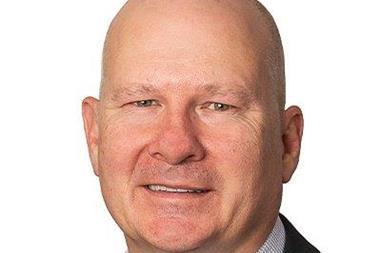New coalition government’s plan represents ‘a commitment to maintaining existing structures’ rather than a basis for far-reaching reforms
German pension industry representatives have expressed their disappointment with the proposed pension policies of the new German coalition government, calling the reform programme a “step back” with respect to the more sophisticated and bold plan that had been discussed in the previous legislature.
Earlier this month, the Social Democratic Party (SPD) and the Union – an alliance between the Christian Democratic Union (CDU) and Christian Social Union (CSU) parties – signed an agreement to govern Germany for the next four years.
Policymakers have outlined measures to keep first-pillar pension levels stable, which include setting up a commission – the Rentenkommission – that will also propose new parameters to determine the appropriate levels of occupational and private pensions.
The parties promise to increase occupational pensions provision among small and medium-sized firms and low earners, and have proposed a mandatory first-pillar insurance scheme for the self-employed. Improved pension provision for mothers, the so-called ‘Mütterrente’, is also among the proposals.

But the proposals are facing criticism from some pension industry stakeholders.
“We would have liked to see a new government [coalition] showing a bit more courage in pension policy. For example, with a clear message to future retirees that additional capital-funded retirement provision is not a nice-to-have, but a necessity,” said Helmut Aden, chair of the German association for corporate pension funds, Verband der Firmenpensionskassen (VFPK).
VFPK has said it also wishes for a more pragmatic approach and a clearer message from the newly appointed government and supervisory authorities that additional pension provisions must be made more attractive and profitable. The policies of the coalition, albeit moving in the right direction, remain vague for the most part, according to VFPK.
“Key levers for strengthening occupational pensions remain unused. For example, there is no clear commitment to a mandatory opt-out scheme, which could sustainably increase occupational pension take-up,” Aden said.
The new investment framework for Pensionskassen and professional pension funds, the Versorgungswerke, must be combined with changes relating to stress test and funding requirements, he added.
The previous government, the so-called ‘traffic-light coalition’, proposed a reform of the second pillar pension system that included allowing Pensionskassen to incur an underfunded position in order to invest more freely. The new governing coalition, however, does not seem to want to prioritise significant changes for the second pillar.
The traffic-light coalition had tried to pave the way for a fund dedicated to equity investing within the first-pillar system, known as the ‘Aktienrente‘, and for third-pillar savings accounts to reinforce the system’s capital-funded component.
Pensions-Akademie, the association of occupational pension experts, had envisioned a bolder approach to pension reform from the new coalition partners.
“There isn’t enough substance in the coalition’s plan,” said Jürgen Scharfenorth, member of the management board of Pensions-Akademie. “The measures are a drop in the ocean for second-pillar occupational pensions.”
With the current framework, without a new law to strengthen occupational pensions, similar to the bill put forward by the past government, it will be difficult to achieve greater occupational pensions coverage within SMEs (small and medium-sized enterprises), which is the real problem in Germany, according to Scharfenorth.
Andreas Fritz, also a member of Pensions-Akademie’s executive board, said that until occupational pensions are bound to collective bargaining agreements, achieving greater occupational pension provision within small companies and among low earners will be unlikely. This is regardless of whether policymakers pursue the ‘social partner model’ for defined contribution (DC) plans or mandatory second-pillar pensions with an opt-out model.
In any event, the coalition agreement makes no mention of the social partner model or mandatory second pillar pensions.
“Another option is to establish a common pension institution that SMEs can use, without a collective bargaining agreement, to offer pure defined contribution plans,” Fritz said. This is what is known as the reine Beitragzusage.
Unnecessary complexity
Marco Arteaga, a member of the Eberbacher Kreis, an association of law firms specialising in occupational pensions, said that Germany continues to “lag dramatically behind” on occupational pensions, compared with the Netherlands, Canada and Australia.
“We can’t reach the point to design second-pillar pensions so that every employer offers it; there are too many complex rules,” Arteaga told IPE.
“What you need is the possibility, for example, for a company taking over another company, to use a uniform standard to consolidate different occupational pension vehicles and pension promises.”
The easiest way to spread occupational pensions in SMEs is the employer paying a contribution, “and that’s it”, added Arteaga. This could be done through a Pensionsfonds, without liability or insolvency protection, he said.
Eberbacher Kreis backs pure DC plans agreed by professional or industry associations, instead of unions.

From an actuarial perspective, the new mothers’ pension, which increases benefits, and a stable level of social security pension without clear funding rules, poses enormous risks in terms of building a fair pension system.
“The coalition agreement certainly contains some sensible approaches, such as the willingness to further develop capital-funded elements in the pension system. These could serve as a starting point for further reforms,” said Maximilian Happacher, chair of the German Actuarial Association (DAV).
However, he added that clear concepts and implementation strategies for making Germany’s complex retirement provision system future-proof are still lacking.
“Overall, we see the coalition agreement as more of a commitment to maintaining existing structures than as a viable basis for far-reaching reforms,” Happacher said.
The latest digital edition of IPE’s magazine is now available
























No comments yet